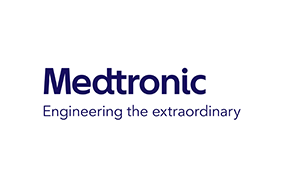Healing People and Planet: 3 Things You Need to Know About This Shared Innovation Challenge
Published 11-22-24
Submitted by Medtronic

By Ken Washington, Chief Technology and Innovation Officer, and Raman Venkatesh, Chief Sustainability Officer, Medtronic
When you think about healthcare technology, you may imagine the pacemaker assisting your dad’s ailing heart, the sutures your child received after a bike accident, or the pulse oximeter placed on your finger during your annual physical exam. You probably don’t think about the energy or resources required to manufacture those products, nor the resulting emissions and waste.
Most discussions about healthcare are, understandably and rightfully, centered on its ability to restore health and save lives; rarely do we talk about its environmental impact. Yet, the healthcare sector is responsible for approximately 4.6% of global greenhouse gas emissions—the equivalent of 514 coal-fired power plants annually, with medical devices and technology among the drivers. And in the U.S., healthcare is the second largest contributor to landfill waste.
It's time to get real about the reality that human health is linked to the health of the planet. We can’t be committed to one without also being committed to the other.
The same force that revolutionizes patient care holds the key to creating a more sustainable industry: innovation. Both of us have seen how approaching innovation, with a deliberate focus on sustainability, is better for people, the planet, and profits. Consider the automotive industry where many innovations have made electric vehicles more enjoyable to own and drive, while also providing a cleaner transportation solution. And healthcare, where virtual visits that arose as a necessity during the pandemic, are showing a positive impact on the environment, while also making care more convenient and accessible.
So, how else can health tech make health better for you and the planet? Here are three not-so-simple ways:
Recognize good things take time
We know developing new healthcare technology requires patience and a substantial initial investment before we see long-term success. We need to apply this same mindset to sustainable technology.
Some companies stick with existing solutions because new sustainable technologies are expensive or aren’t ready for wide-scale adoption. That’s why pilot projects are crucial stepping stones to broader implementation by giving sustainable technology the time it needs to mature and prove its effectiveness. Successful pilot projects often inspire a scalable roadmap for long-term cost efficiency.
At the same time, we need to balance short-term financial pressures with long-term environmental goals. That means adopting a future-oriented view, recognizing today's technology will only get better and become more accessible and affordable over time.
For example, innovations in solar panels over the past decade have made them significantly more cost-effective as a sustainable energy source. This has allowed Medtronic to install 22 solar arrays across 16 locations, generating more than 35 MWs of power—enough to power more than 22,000 homes. And we recently signed a virtual power purchase agreement which adds renewable energy at a scale equivalent to nearly all our U.S. energy needs.
Companies that make these strategic investments today, with the same patience and investment they apply to product development, are setting themselves up for greater growth and profits down the line.
Reimagine products and packaging
Sustainable product and packaging design are some of our industry’s most complex challenges due to strict regulatory requirements that restrict circular design solutions.
Companies can begin reducing resource use and waste with takeback programs, recycling product components and transitioning to digital instructions for use. But the goal isn't just to reduce waste—it's to create products that maintain the highest standards of patient care while contributing to a circular economy.
To do that, we need to design products and packaging with their end-of-life journey in mind, whether that's reprocessing, recycling, or biodegradation. It’s important to remember there are many ways to reach sustainability goals and although reprocessing is becoming more common practice, sometimes single use devices can be the right option, especially if reprocessing increases risk to patient safety.
It is the conscious actions at the beginning that count a lot—for example, designing for sustainability before the first prototype is even developed. Industry leaders are dedicating R&D teams to spot opportunities for circular solutions within products’ lifecycles, like the Sustainability Development Center at Medtronic. (Learn more in our latest Impact Report.)
Recruit partners
No one can solve our industry's environmental challenges alone. It requires collaboration across the healthcare ecosystem.
This starts with our supply chains, given that Scope 3 emissions typically account for over 90% of a healthcare technology company’s carbon footprint, including at Medtronic. Engaging suppliers, logistic partners, employees and customers will not only help address emissions, but it will also build resilience against future risks that threaten supply chain stability.
We also need to think beyond our own value chain and look to others in the industry, academia, civil society, and government to develop breakthrough solutions and new enabling policies and incentive frameworks. For example, the Dutch government’s ESCH-R: Creating Circular Hospitals Together program is helping address critical circularity gaps in healthcare with sponsorship from industry partners (including Medtronic). Collaborative approaches like this are key to building the infrastructure, developing the technologies, and creating the standards needed for a collective impact.
The transformation to sustainable healthcare won't happen overnight, but momentum is building, and it will grow because it is good for business and good for the planet. Together, we can create a healthcare technology industry that heals not only people but also the planet we all share.
After all, the healthiest future is one where innovation and sustainability are inseparable.

Medtronic
Medtronic
Bold thinking. Bolder actions. We are Medtronic.
We lead global healthcare technology and boldly attack the most challenging health problems facing humanity by searching out and finding solutions. Our Mission — to alleviate pain, restore health, and extend life — unites a global team of 90,000+ passionate people. Powered by our diverse knowledge, insatiable curiosity, and desire to help all those who need it, we deliver innovative technologies that transform the lives of two people every second, every hour, every day. Expect more from us as we empower insight-driven care, experiences that put people first, and better outcomes for our world.
In everything we do, we are engineering the extraordinary.
More from Medtronic

